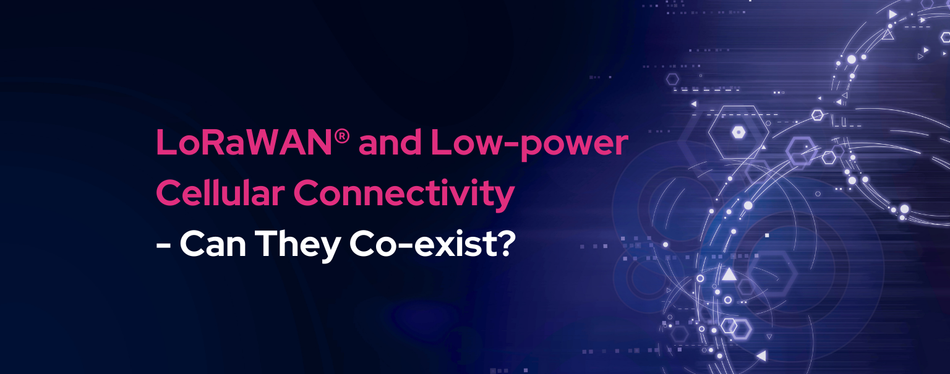LoRaWAN® and Low-power Cellular Connectivity Can They Co-exist?
LoRaWAN® and cellular connectivity have largely been pitted against each other with developers having to decide between one or the other when designing new IoT use cases. Monogoto’s ethos is all about facilitating developer creativity and innovation, which has driven our new partnership with RAKwireless to offer a solution that incorporates both. We believe developers really can, and should, have the best of both worlds.

This article was first published on
monogoto.ioLoRaWAN or Cellular Connectivity?
This is every developer’s first question when considering a new IoT device or use case. LoRa technology has a lot of advantages—it offers low-power, wide-area network connectivity on an unlicensed spectrum at a low cost for both the device and the connectivity.
On the downside, LoRa can only cope with low volumes of traffic. It’s a crowded spectrum, which can make it noisy, and, in most cases, the user needs to build their own network. These downsides are easily manageable in small areas—for instance, a farm with water-monitoring sensors or a warehouse tracking refrigeration status. But when the use case requires more data, more mobility, or more scale, LoRa becomes a problem. Even with companies like Helium using blockchain to build wider LoRa networks, with over 1mn endpoints or gateways, the coverage and reliability at scale aren’t there.
Low-power cellular connectivity, dominated by CAT-M and NB-IoT protocols are cellular options that have been very successful, facilitated by most mobile operators. The cellular chip is higher than the LoRa chip. Traditionally connectivity cost is higher than deploying a LoRaWAN network.
When a company wants to deploy a global solution, there is friction involved in getting a contract in each country. Monogoto removes the need for complex, expensive negotiations and contracts with multiple operators. However, cellular coverage has dead zones, particularly in large countries where the result is that devices aren’t always tracked and monitored.
This challenge is why we are so excited to partner with RAKwireless to create a module that comes prepared to offer both LoRa and cellular connectivity.
By having both, developers have options, and we can facilitate a wider range of use cases, more coverage, and, of course, enhanced reliability of coverage.
Combined LoRaWAN and cellular devices lower the barrier for developers considering connectivity options when designing new apps, giving them the space to focus on what they do best—be innovative and create new killer apps and solutions.
Rather than having to make a decision today that has long-term implications for usability and cost without any flexibility, developers can choose their preferred connectivity today, and then future-proof it and enhance it with a second connectivity option that can be accessed when necessary on an ad-hoc basis or when the need changes. This is future-proofing and flexibility at its best.
At Monogoto, we love developers.
We want to give them the room to do what they do best—design new and exciting use cases for IoT devices that improve customer experiences, efficiencies, safety, cost savings, and more. Our partnership with RAKwireless to create devices that enable both LoRa and cellular connectivity is one step toward making this a reality.
So, what will be the next “killer app” using a device that incorporates both LoRaWAN and CAT-M connectivity? I’m not a developer, but I think scooter companies will leap at this. They need to deploy in cities, which are great candidates for LoRa networks.
To date, no smart scooter company has been confident enough to deploy a LoRa solution despite its obvious benefits, because the coverage has been unreliable. Instead, they have been using cellular connectivity. However, with our new devices, they can add LoRa as an option, which will lower their overall connectivity costs, increase the stability of their connectivity, and ultimately enhance the experience for their customers. I can’t wait to see what they come up with.